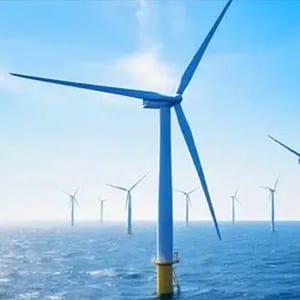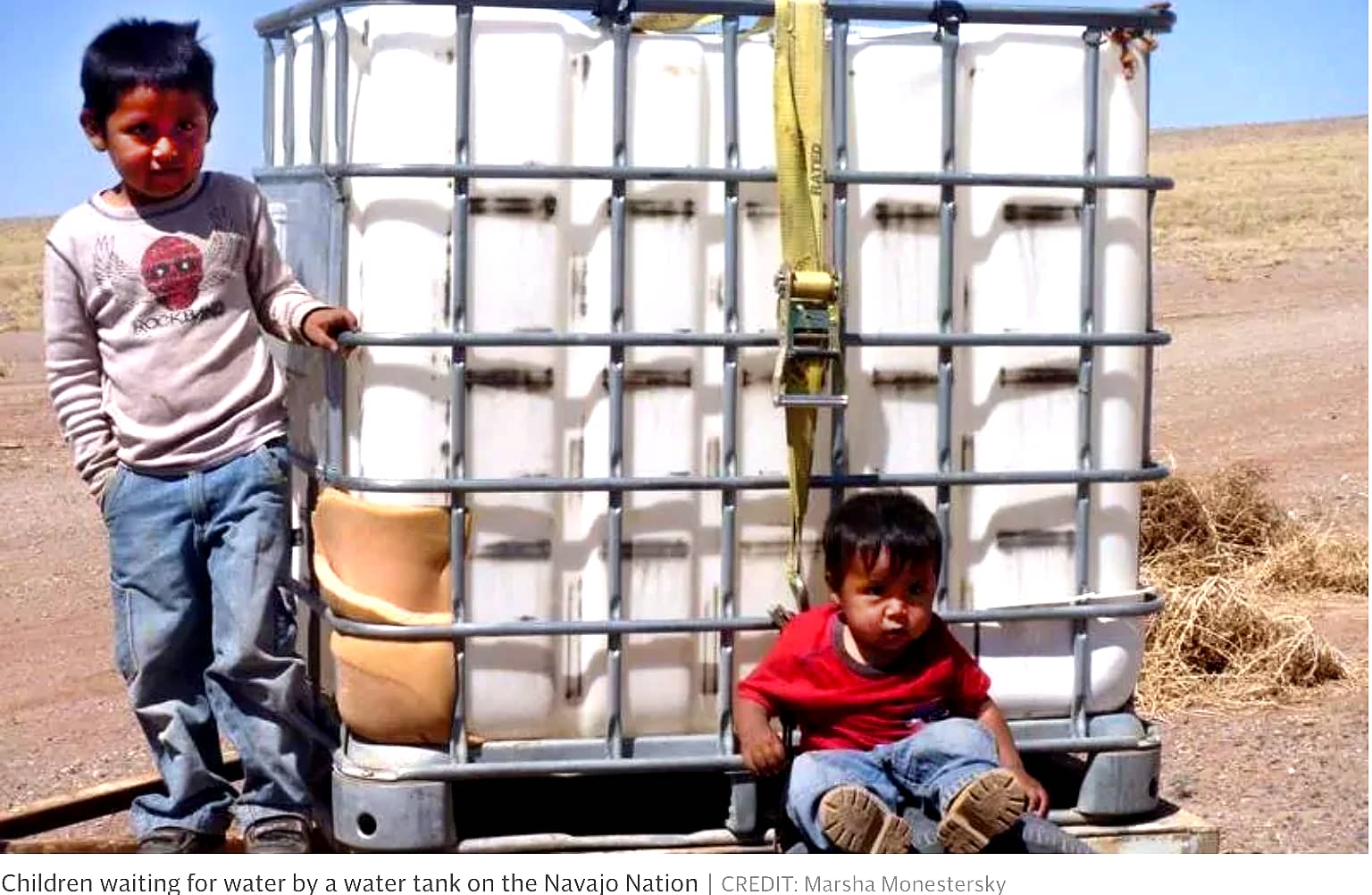Current Issue
climate ACTION
 Offshore wind off of New Jersey coast will continue, say over 170 elected officials for our energy independence
Offshore wind off of New Jersey coast will continue, say over 170 elected officials for our energy independence
OP-ED
Electric school buses can play a role in NM’s energy transition Op-ed by NM State Representative Debbie Sariñana
“In 2021, Congress passed the Inflation Reduction Act, allocating $5 billion in grants for the Clean School Bus Program to help school districts that want to transition away from diesel buses. Five New Mexico school districts received these grants for new electric school buses, and more applied this year. I am proud to sponsor the School Bus Modernization Act. The idea is simple. New Mexico will designate funding and simplify systems to make it financially feasible for school districts that want to retire aging diesel buses with electric buses.
“A slow but deliberative switch to electric school buses eliminates emissions that harm public health and plays a role in the state’s larger clean energy transition. Electric buses can serve as batteries on the grid and help utilities meet demand. . ..” More
OP-ED
Connecticut needs offshore wind energy now Op-ed by CT State Rep. Anne Hughes
“My colleague and I recently attended the Elected Officials to Protect America (EOPA) Energy Security Summit in Washington, D.C., highlighting the Inflation Reduction Act’s Implementation, cohosted with the U.S. Department of Energy. As legislators, we participated to help ensure that Connecticut applies for our share of the $369 billion in IRA funding to make historic investments in our communities, to invest in our transition to carbon neutral, clean energy grid, with a focus on veteran-owned businesses and centering environmental justice-impacted communities.
“This means an historic investment of federal funds in our local workforces and economic justice-impacted communities.” More
OP-ED
Viewing Minnesota’s future with a climate lens Op-ed by Minnesota State Rep. Larry Kraft
“Transportation is Minnesota’s No. 1 source of greenhouse gas emissions, making up 25 percent of our total. Electric vehicles, powered by a clean energy-based grid, are an obvious solution — passenger vehicles and trucks comprise 70 percent of transportation emissions. We made significant progress by passing the 100 percent law this year, which will get us to a 100 percent clean energy grid by 2040.
“But electrification isn’t enough. Gas-powered cars will be on our roads for decades. And even for EVs, grid electricity won’t be fully carbon-free until 2040. That means we also need to examine how much we are forced to drive to live our lives. More transit, better pedestrian and biking infrastructure, and intelligent land-use decisions help reduce driving miles. . .” More

Hundreds of elected officials attend EOPA Climate Emergency & Energy Security Summit at DOE to learn about IRA implementation and EOPA Task Force.
The I.R.A. makes the largest ever American investment in climate, justice, clean energy, jobs, and lowers consumer costs, while supporting critical programs to improve the health and wellbeing of American families. Read more HERE.
On November 16, EOPA convened their annual Climate Emergency & Energy Security Summit in DC at the Department of Energy. This year EOPA partnered with the Department of Energy’s Small and Disadvantaged Business Utilization (OSDBU) office. At the Summit members of the Climate Emergency and Energy Security Task Force, and others had opportunities to learn about IRA funding, criteria, and how to apply for the historic investments in America’s communities. There was also a focus on what the IRA can offer veteran owned businesses and Justice40 communities . . read and watch more HERE.

EOPA gave a briefing at COP28 on environmental justice, energy security and the need to become energy independent
At the briefing EOPA leadership had an opportunity to speak about the need for their Energy Security Marshall Plan for Ukraine. Listen HERE. Additionally at COP 28 while EOPA officially acknowledged US leadership in policy to cut methane pollution, the organization of current and former US elected officials also called on the Biden administration to stop LNG expansion as it locks in emissions and could prolong conflicts Read more HERE.
Explore our radio shows, videos, more op-eds and documentaries
From California to Maine elected officials share their stories with us about how they are working to combat the climate crises in their communities, state and nation.

IRA investments crucial for clean energy, national security say veterans who are lawmakers
“What we are looking at here is reducing energy costs, good-paying jobs and small-business support. And in Illinois we are focusing on electric vehicles to make sure that we have the charging stations, the battery storage that we need and the partnership between the state and the functional federal government,” Rep Kifowit said.
In 2021, the state of Illinois passed the Reimagining Energy and Vehicles Act that strives to make Illinois a hub for electric vehicles and battery production. She says the state is also looking at what she calls “all types of renewable energy,” including wind, solar and nuclear, to ensure a better tomorrow for future generations . . . Listen and/or read more HERE.

Elected officials: Inflation Reduction Act investments will aid national security
Alex Cornell du Houx, president and co-founder of Elected Officials to Protect America, said relying on fossil fuels is risky. He emphasized they not only make the economy susceptible to unpredictable fuel prices, but also jeopardize national security. “With the Inflation Reduction Act, it is part of the solution to decouple ourselves from this dependency on the source of energy in which autocratic nations primarily control,” du Houx explained. “That’s the exciting thing about it. It’s an amazing solution that’s really tangible and historic investment.” He also stressed the importance of educating historically disadvantaged communities about federal investments available to combat the climate crisis under the Justice40 Initiative. He added there will be real change in underserved areas once they know about the available resources. . . .” Read and/or listen HERE.
Explore podcasts with elected officials, community leaders, concerned citizens and powerful youth voices from across the country who are actively combating the climate crisis.

Explore podcasts from the City Climate Corner as they explore how small and mid-sized cities are tackling climate change and moving toward an equitable and sustainable future.
Share their ideas and innovations with others.Co-hosted by Abby Finis and Larry Kraft.
For City Climate Corner podcasts click HERE.

Explore podcasts from the Listening Project on the environmental fight in the refinery port city of Richmond, CA. From Chevron refinery’s toxic pollutants and the cleaning up of hazardous materials and from the former Zeneca site to the fight over the Point Molate shoreline, environmental concerns have shaped politics and conversations in Richmond for decades. These podcasts explore the issue.
For Listening Project podcasts click HERE

Radio/Print news reports
A partnership with PUBLIC NEWS SERVICE allows us to share important RADIO news reports from across the country on the climate crisis and action being taken.
Please listen or read the stories HERE.















